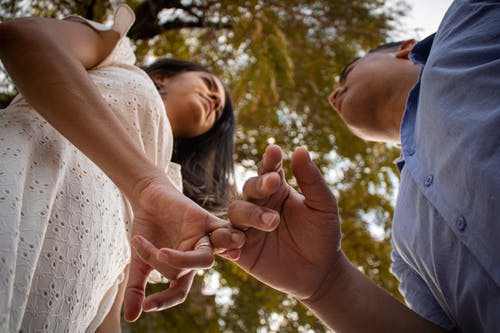By Jennifer Cunningham Beeler, JD
Hiding a credit card receipt. Finding another empty bottle of vodka in the back of a cabinet. Deleting that text message. Such small things. Yet those small things pierce the heart, and are sometimes the irreparable crack in the foundation of a marriage.
So why would anyone want to sit across the table from their conniving, duplicitous, soon-to-be ex-spouse, and think that there can be honest negotiations in divorce? How can you trust someone to be fair in setting parenting time with the kids, dividing up furniture, and splitting the 401(k)?
The mental health professionals in the room possess the skill set to navigate those trust-betrayal waters. As attorneys, we are trained to go in the other direction. In litigation, we look to exploit the lie, expose the weakness. The instinct in advocating is to use those sensational nuggets of human vulnerability to your client’s advantage.
In the Collaborative Divorce setting, building trust cannot just rest on just the coaches’ shoulders. Trust is critical so that no one looks to have the upper hand, and that everyone together is crafting the resolution of settlement.
You are probably already using these trust-building skills without actively labeling them, or sometimes are pleasantly surprised when things just “work.” The attorney needs to adjust her hat, think about “what next,” and create this bond. This is important not only with her client, but with her client’s spouse, and other members of the team.
Paul J. Zak, Ph.D., Founding Director of the Center for Neuroeconomic Studies, explores trust in the workplace in his books and talks. Here are some personal traits he cites, which you can employ to build trust in the collaborative setting:
• Recognize excellence. It does not have to be extraordinary, but even the ordinary good traits, good deeds and good words need to be held up and recognized. Not just a passing praise, but a genuine recognition of a job well done. Mom is good at math homework, and moreover, has the patience. Dad is good at a ballet bun, and is sought after by other dance recital parents. These minor, yet major parts of life should be acknowledged, thanked, and brought back again in future conversations to build trust.
• Be authentic. This is something we all strive for, yet often fall short because of the conflicting desires to be liked and be respected. Being authentic simply means being true to yourself. It means admitting when you are uncomfortable, when you have made a mistake, or when you don’t understand. Being authentic builds rapport, as well as trust.
• Work for transparency. If your client has made the mistake or caused the transgression, work with it. If your client won’t own up, or disclose, work with that too. Being transparent about financials is critical, but it is also important on being forthright about where each party wants to live next, or a being honest about a new partner will be introduced to the children. Both parties at the table need to be clear, with no surprises.
• Make concessions. This is what makes the process of negotiation authentic as well. Acknowledge that a certain dispute or point is important to the other side, and take the time with your own client to explore its value. Concessions build trust when they are recognized as concessions – that one side is conceding their position to permit the other to have their way. Reciprocity can then be built as the discussions continue.
Jennifer Cunningham Beeler
191 Waukegan Rd. Ste. 315, Northfield, IL 60003
847-868-1860

